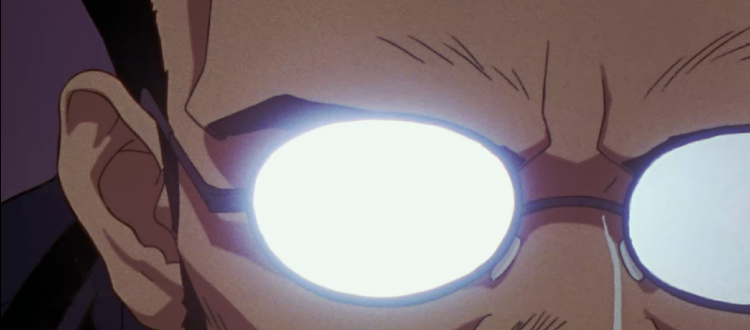Revangelion: Part 26 – The Cruel Adam that Mumbled “Meh” At the Story
What a goddamn mess.
Imagine all the other things I could be writing about right now. I could be elbow deep on Raised by Wolves. I could be on the elliptical glider catching up on Power Rangers. I could be teasing my way through some socially conscious Korean horror movie, probably about zombies. Instead, I’m writing these words. I’m also contemplating how far I’ve come since starting this project.
I started Revangelion in good faith, desperate to see what my younger self missed. I wanted to know what was wrong with me such that I couldn’t see what others did. For my efforts, I was rewarded with a disjointed mess of emotional catharsis. Where I wanted to connect with a story, I was invited to play therapist for a bunch of assholes. And there isn’t even any point in trying to hold the writing to account, because by episode 26 even Evangeilon has stopped giving a shit. Case in point:
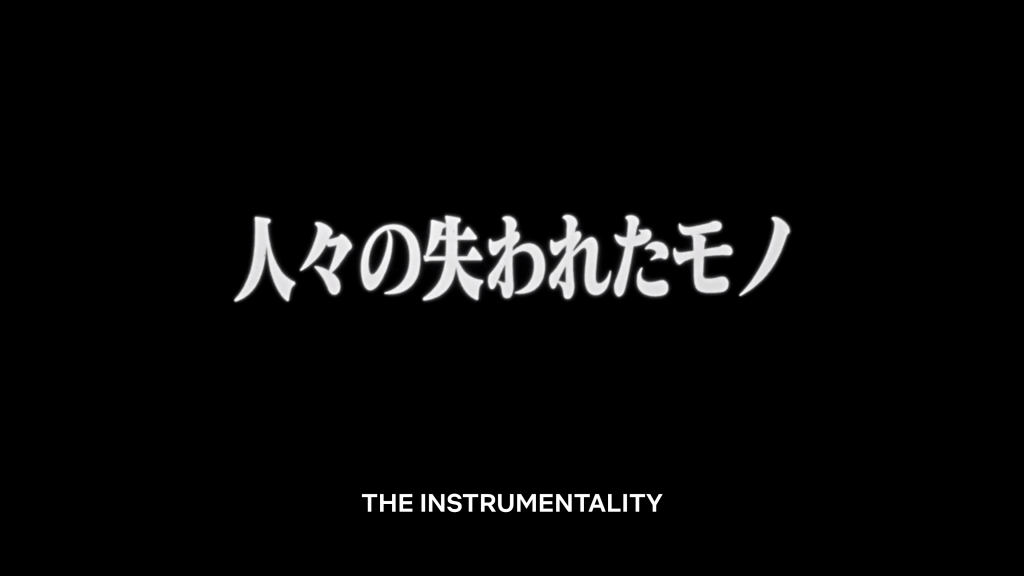
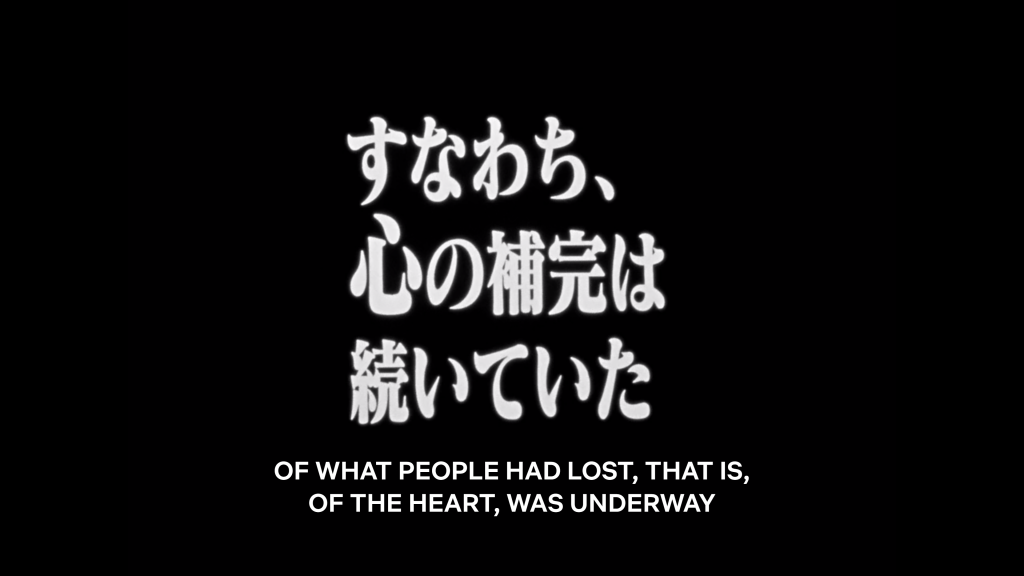
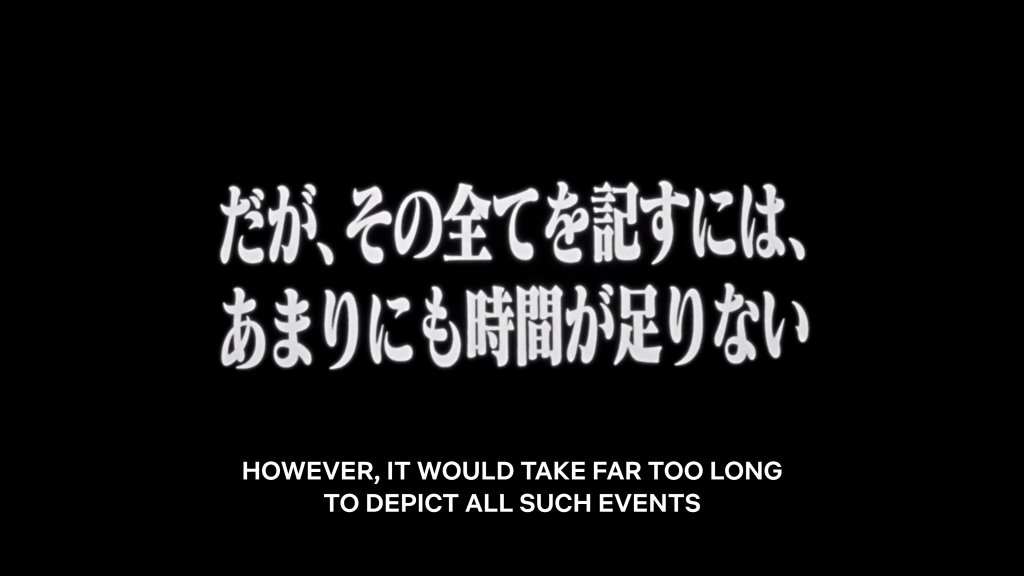
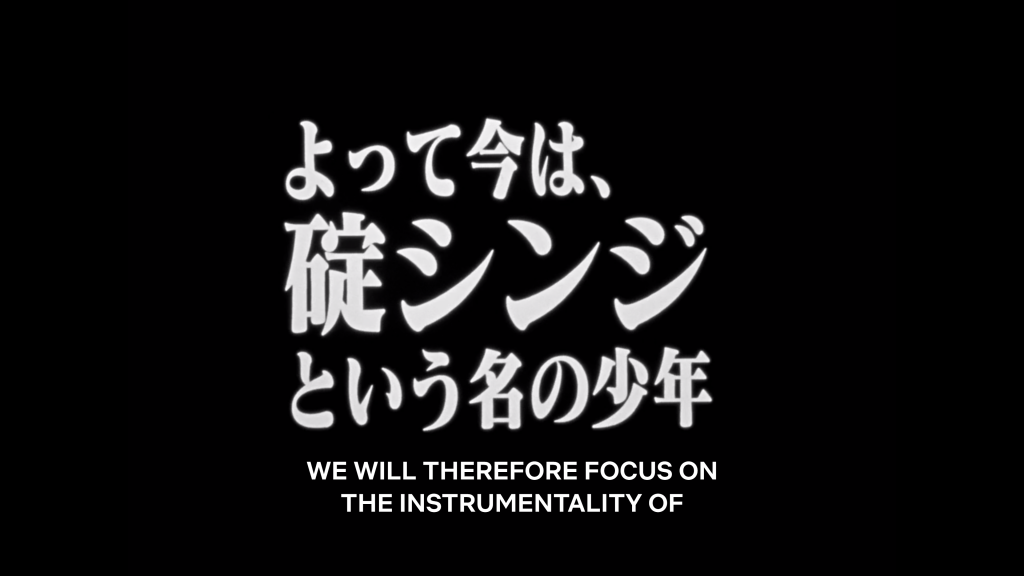
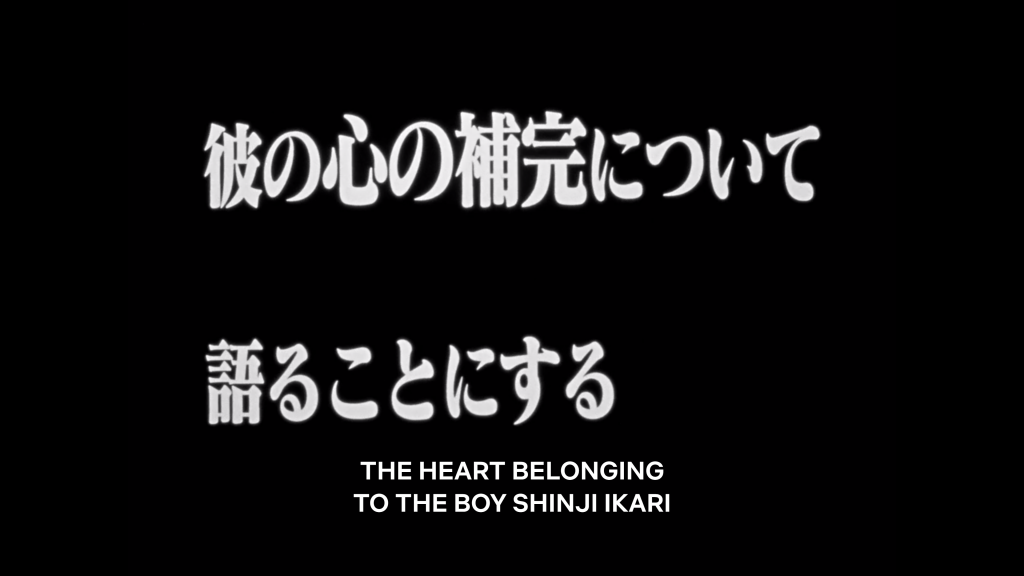
Everything interesting, everything that drives conflict and invites growth, is cast off in ten seconds. Nothing matters other than a deep dive into Shinji Ikari as he is confronted with losing himself amid Human Instrumentality…or something. Really, there’s no point wasting words on trying to bring order to this chaos. It’s a pile of teenage ennui that I shall, at once, ape and dissect with all the subtly of late-stage Hideki Anno. With that said, I hope my choice of font underscores the absurdity of this kind of storytelling.
Here we go.
Shinji presents as hating himself.
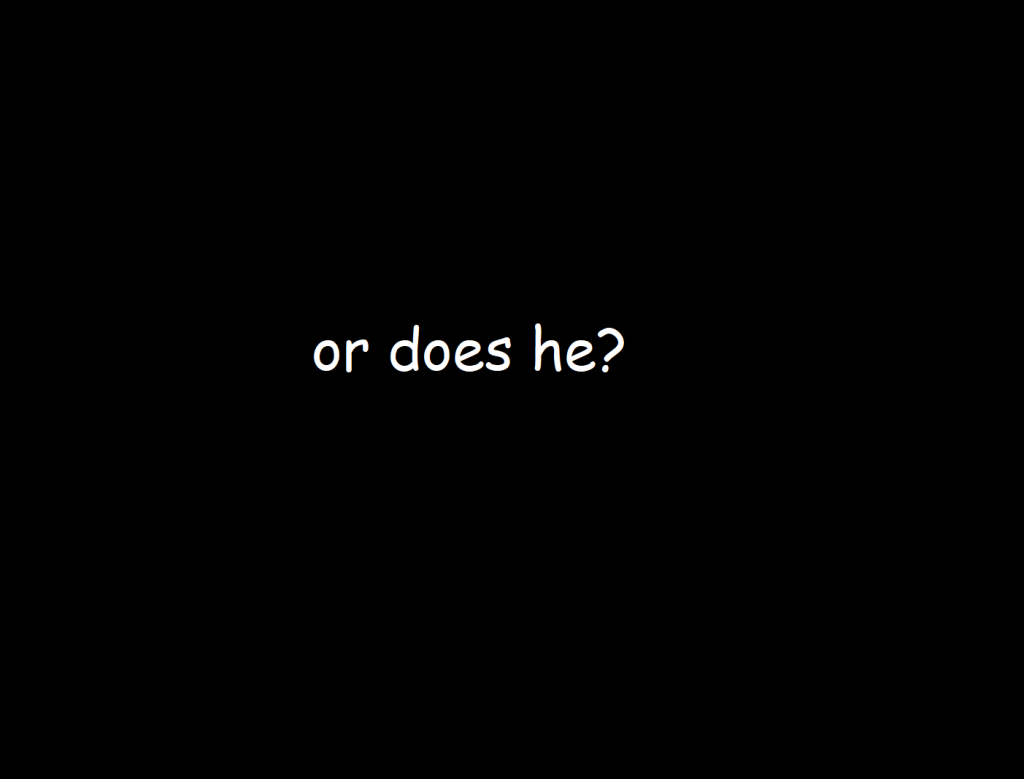
Probably.
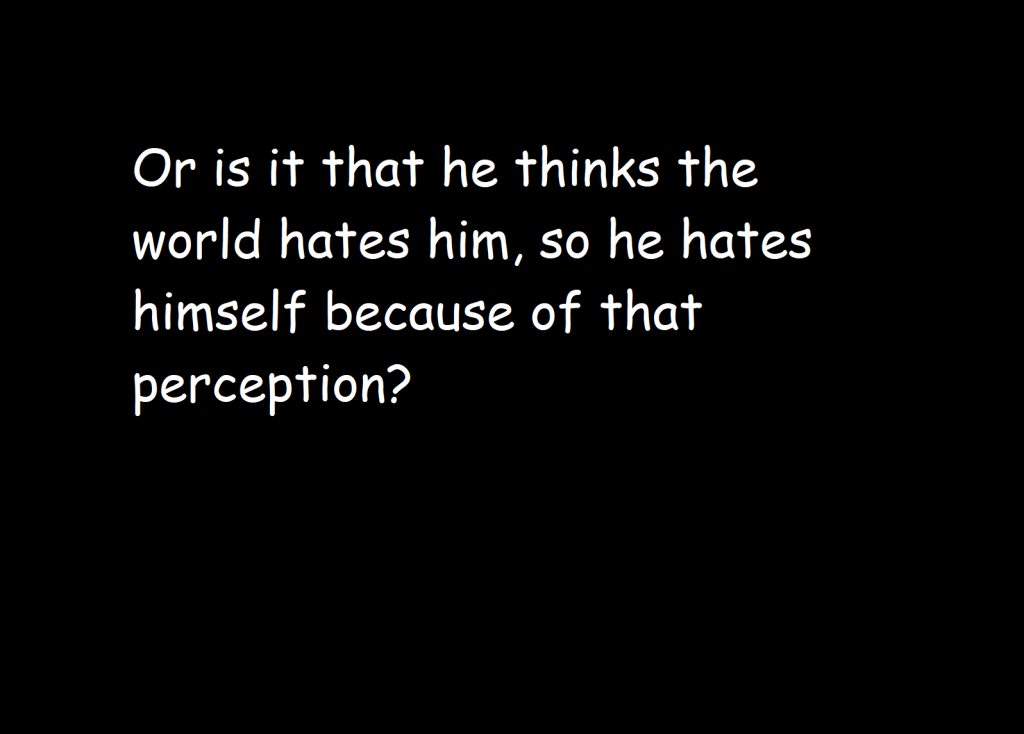
That’s effectively the same thing.
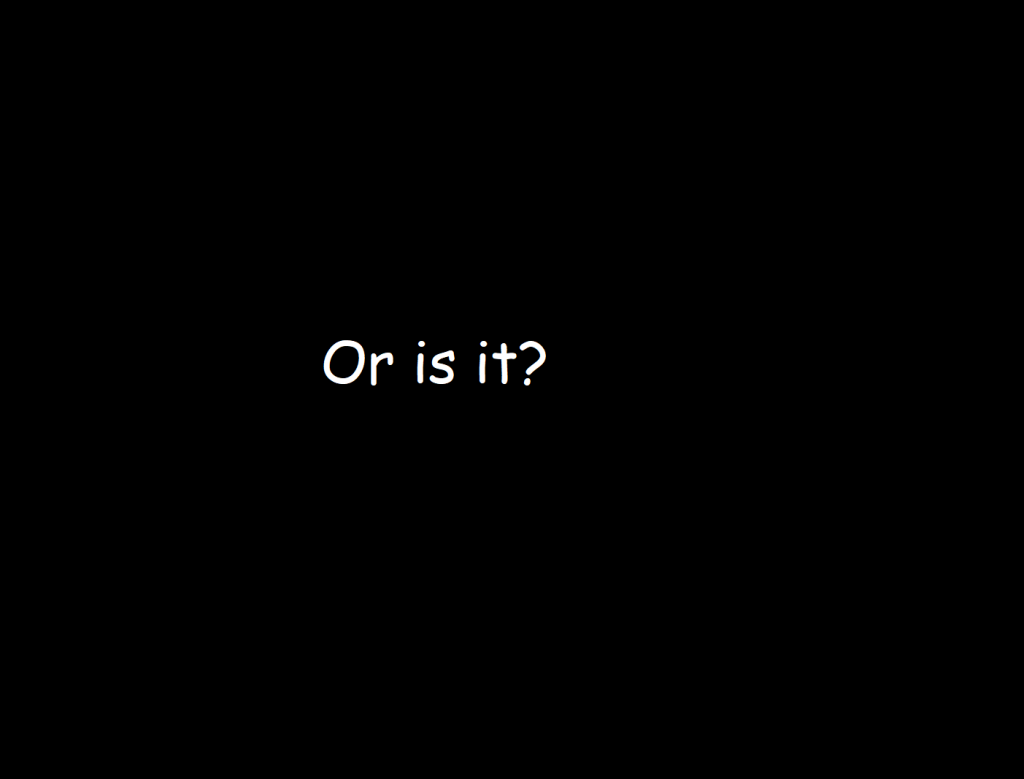
I could write the last hurrah of this essay series as a banal back and forth with myself; wherein, I assert something, then undermine the assertion by questioning the very nature of reality. Aren’t I philosophical? Can I have some accolades and groupies now? How about a book deal or three? Ladies, form an orderly queue.
Though if I really wanted to capture the episode’s mood, I would also have to throw in a few pencil sketches of myself talking to a blank page. That’s the only way to really capture the visual motif of “we’ve run out of money but somehow have to produce something.”
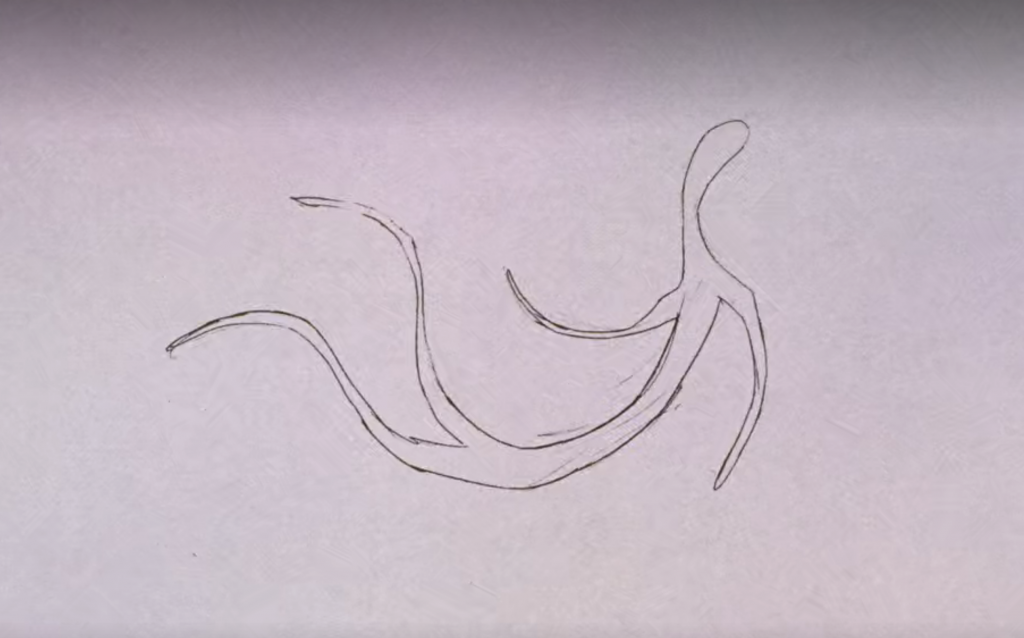
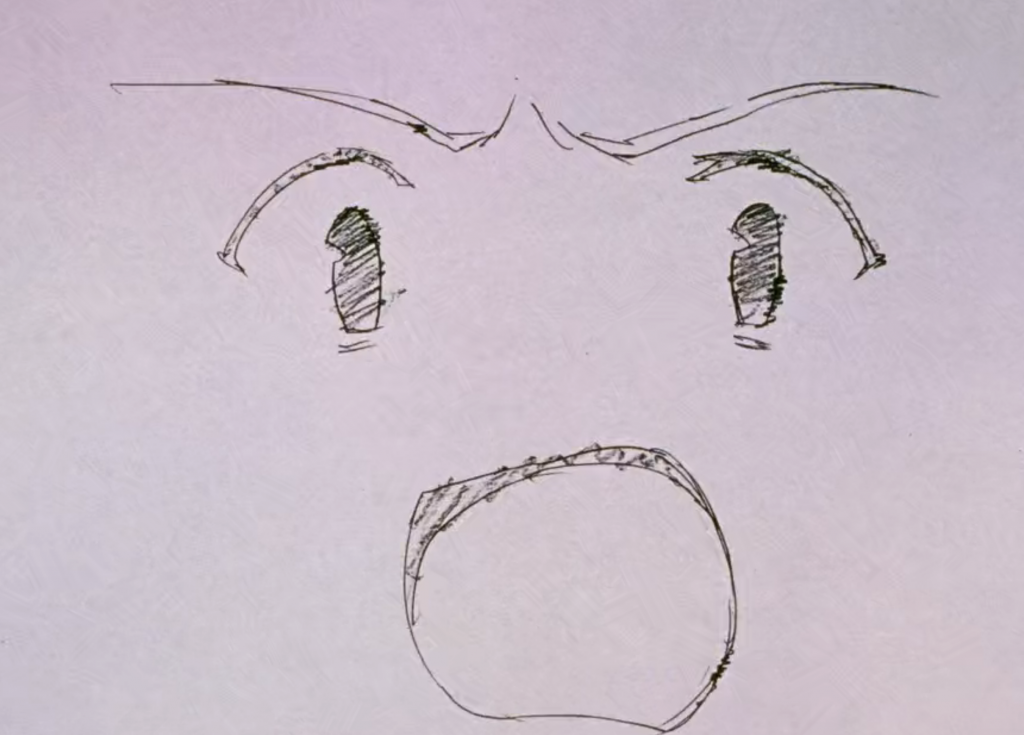
In fairness, the motif might also be, “the creator’s vision is so high concept that the art team literally had no idea what to do with his notes, and he’s just made us throw everything out and start over again at 4am.” One thing is for sure, I will never look at Don Hertzfeldt’s Rejected in quite the same way. A banana announcing it is, in fact, a banana is more honest than whatever conceptual victory lap is happening in this episode.
I should also make myself very clear in saying my issue is not singularly fixed on the episode’s use of an abstract visual method, though it is nothing I find inspiring or housing any particular depth. My objection to this endgame is the unearned payoff. If the ultimate conflict of this series comes down to Shinji saying, “I hate myself. I’m a liar, and a coward, and a sneak, and I’m no good for anybody around me,” then I need more than a sitcom grade come to Jesus moment as resolution. It’s not enough for Shinji to decide that maybe he can try being nice to himself. No truly self-loathing person can solve their problems with such psychological pabulum. That’s too cheap of a way out given all the effort the series has poured into mind fucking its primary character at every turn.
This cop-out also means that are not going to be any consequences for Shinji being a murderous shit weasel.
Remember that Shinji was willing to use Eva-01 to smash NERV HQ, and presumably everyone in it, when Gendo almost killed Toji. Recall that only two episodes ago Shinji crushed Kaworu to death. He squeezed Eva-01’s fist, and popped the final angel like so much overripe produce. The next scene was a snap cut to Eva-01’s hand getting power washed. *cue studio audience laughing* Maybe, raging Shinji is right to hate himself just a little bit.
Perhaps the best place for Shinji amid Human Instrumentality is to be locked in his own personal holodeck. If trauma is at the locus of the series, then the idea of ostracism in advance of an earned redemption should be fair game. But there I go forgetting myself. This is Evangelion, and there is absolutely no reason to ask that sort of question of this series. Evangelion is a vector for catharsis, not ideas.
Don’t believe me? Are you getting ready to whip out your MFA dissertation to prove me wrong. Alright, let’s dance our last fucking dance. Here are the very last words of the series.
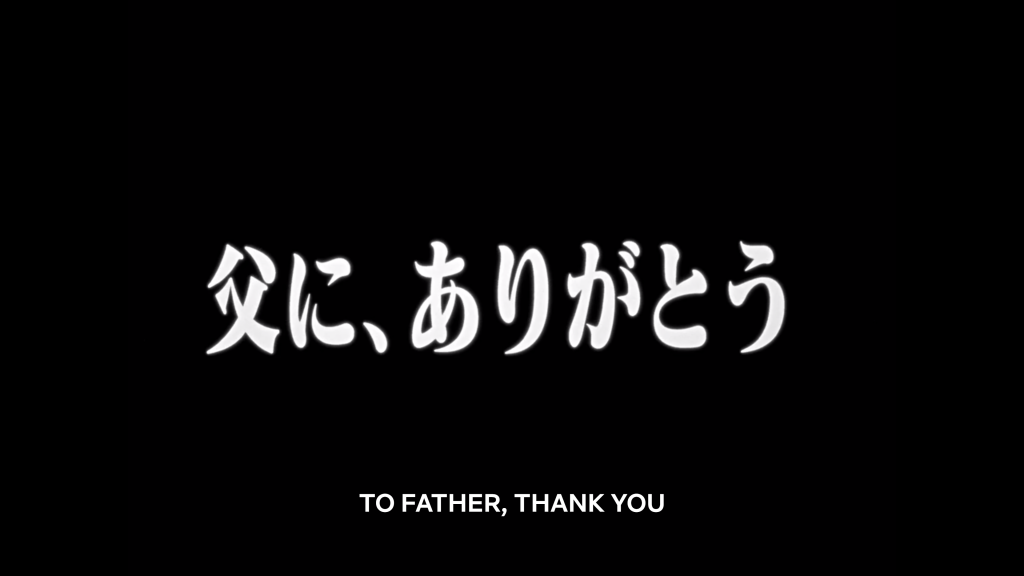
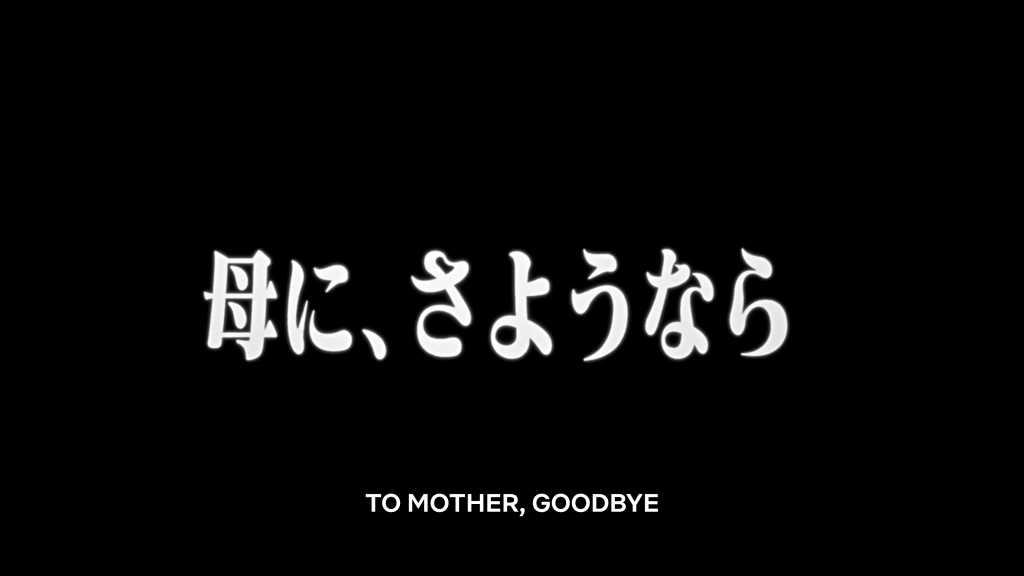
Tell me those two cards aren’t the final proof that this whole series is about Hideki Anno writing himself as Shinji and working through some issues with his parents?
I’m not trying to slag-off art as a medium for processing life’s traumas. Once again, my issue doesn’t come down to something as fickle as taste. What I would offer is that the cruel angel’s thesis falls far afield from the cruel angel’s research question, and that’s a big problem.
We started this series with the idea that monsters were going to destroy the world unless a neurotic teenager got in a robot and saved us all. Along the way, we saw this teenager get turned into a weapon, suffer abuse from his co-workers, and then try to find some agency in all of this by locking on to his job as his identity. In the name of that identity, and its betrayal by Gendo, Shinji was willing to become a killer. Not a killer of the supernatural, but a killer of humans. What remains of Shinji after that has to be a shell of his former self. But this ending asserts that a story about a broken person can resolve itself by having that person say, “Well, I guess I’m going to try and be fixed.” That is my bone of contention. Evangelion’s ending is a half-halfhearted effort at resolving the most recent conflict, while ignoring literally all of the other dropped plot threads.
Such is my final and ultimate issue: Evangelion begins as one thing, explores becoming about six different things, and then settles on a seventh thing to the detriment of everything else it hinted at doing. On that count, a large swath of the series, ultimately, becomes irrelevant to the story. Who gives a fart about Second Impact, Adam, Lilith, SEELE, the Spear of Longinus, Tokyo-3, Misato, Gendo, train metaphors, and everything else if the ending is “congratulations on opening yourself up to the idea that you might not be a pile of shit in human form, Shinji.”
None of the exposition mattered. None of the fights mattered. The relationship between Shinji/Misato; Shinji/Rei; Shinji/Asuka didn’t matter. Hell, the relationship between Gendo and Shinji didn’t really count for much when the cards were down. This, the Book of Revelation in Hideki Anno’s dogma lacks any sort of poignancy or lesson. It may even be a fraud of an ending since the final episode dips its toe into a multiverse where Evangelion is a full slice-of-life series featuring Misato as the hot teacher. Literally, the hot teacher.
But before we go full Rick Sanchez, let’s assume the reality of the story is not meant to be skipped when it gets boring. By that measure, the motif of Shinji going along to get along demands years of self-reflection, not ten minutes of talking to himself. That is some mighty strong kool-ade on the part of Instrumentality.
And it might well be that the power of Human Instrumentality healed Shinji. With the holes in his heart gone, he could be in a place to forgive himself. But we’ll never know, will we? The series decided that no other characters mattered in the final calculus. We are meant to take it all at face value from an unreliable narrator who, himself, is the creator writing himself into the series. The audience is expected to accept Instrumentality as the solution to feeling so alone you will do anything to end your pain.
Whelp, I’ve never been so alone that I wanted to destroy the world after appropriating billions in government funding and killing half the people on the planet to achieve my vision of paradise. I’m better than Gendo Ikari on that front. And since I’ve seen at least one (1) episode of Mitchell and Webb in my life, I know to ask the question, “Are we the baddies?” Which makes me better than most of the assholes who work at NERV. And since I’ve never been in the market for an obtuse and confusing dogma that will make me feel seen while also asking me to do the heavy lifting of processing someone else’s traumas, I guess I’ll never really find any resonance in the episode-to-episode ethos of the writing.
I spent a year and 45,000 words trying to understand the problem of Evangelion. A problem that, by and large, is a trivial and stupid one. It’s a problem rooted in the assumption that there was something wrong with me for not getting this series. When people speak of this project, should they speak of it, it will likely be to speculate on how much free time a man of my age has on his hands that he can indulge in such blather – does he not have any real problems in life?
None so many that I need to seek solace in this half-story with its menagerie of dysfunction.
The problem is, and always was, with Evangelion and Hideki Anno assuming that the audience wants to be part of its whole. I don’t. I refuse it. If this review stands for anything, let it stand as my indictment against Evangelion and its fans for believing in belonging at any cost. Let it be my monument to finding satisfaction in refusing to go along to get along, even if the cost is being alone.
Congratulations, Adam.

